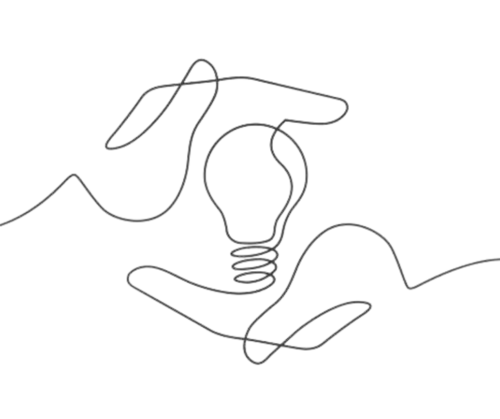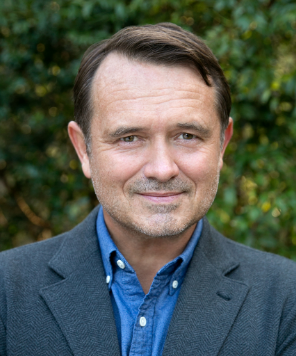Outlander’s Founder Framework
Posted by: Paige Craig
Posted on 01/27/2021

Posted by: Paige Craig
Posted on 01/27/2021

When I began investing over a decade ago, I evaluated deals using a holistic lens: a well-built company with an innovative product made for a good investment. Using this company-centric framework, I invested $1M into 20 companies during my first year that I thought had a good shot at success, but within 12 months, all but a few (shoutout to ExpenseCloud, Klout, Ticketmob, and Burstly—all 4 of which I later sold my shares in for $2.7M) were clearly failing.
Frustrated, I began taking inventory of the different factors that could’ve prevented them from succeeding, but their solutions, business models, and market influence all checked out. And yet they were still failing.
At the time, I was meeting with founders and listening to traditional pitches and predictive cash flows, which always painted a really pretty picture of the future if all went well. But over time, I understood that expecting things to go according to plan was unrealistic. The only real predictable factor with startups is that their industries will inevitably shift, and their founders will have to find ways to effectively respond. So if change is as inevitable and uncontrollable as the weather, then what aspect of each startup can we look to for constancy?
I decided that if I wanted to be an adept predictor of startup success, I would have to develop a specialized talent in evaluating the founders themselves.
I started observing and analyzing the factors that set successful founders apart from others. What psychologically differentiated them, and how did the stories they told us about themselves differ?
The answers that I found won’t come as any surprise to literature buffs: the most successful founders had shared characteristics rooted in the defining moments of their lives. In other words, they all followed the archetypal hero’s journey. Their personal stories often hinged on a moment (or moments) when they struggled deeply but somehow found a way to persevere or overcome an obstacle they couldn’t control or foresee.
These kinds of stories gave me a glimpse into a founder’s internal GPS, which could be used to predict how they would handle the chaos of a startup’s lifecycle. I began to see that some founders are more wired for adaptability, so I stopped asking for their pitches first and started asking them to tell me about themselves—their stories, their challenges, their fears. The answers they shared in conjunction with the success or lack of success they inevitably experienced provided me with the evidence I needed to build Outlander’s Founder Framework.
Our Founder Framework is the most important evaluation tool we use when deciding whether or not to invest in a startup, and like the industry we work in, it’s constantly evolving as we learn more about founders and their psychological makeup. Currently, the Framework consists of 38 characteristics divided into four categories: vision, intelligence, character, and execution. Like any good literary hero, outstanding founders need strength in each area.
Vision: Think of a founder’s vision as their map. It might not be extremely detailed, but it gives them a necessary outline for the journey that lies ahead of them. It helps them predict hurdles, and it gives them a compelling way to convince others to join in on the quest. Founders with great vision aren’t as focused on the ways they want to get to their destination; they tend to focus on the fact that they’re dedicated to getting there by any means necessary.
Intelligence: When I refer to intelligence, I’m not talking about how high their IQ is or where they got into college, although those things don’t hurt. What I mean is that they have a great internal compass—meaning knowledge of their venture’s industry, the skills to navigate through complications, and experiential knowledge that led them to create this particular solution. When their ship goes off course (and it will), they have the intelligence to get back on course and to learn from the detour.
Character: A lot of extremely successful founders have been what people might refer to as “a real character,” but when I’m evaluating a founder’s character, I’m actually trying to find out what fuels them. I’m looking for homegrown mental fortitude, something akin to grit and determination. A lot of people say they’re ready to give all of their time and energy to see a venture through, but only a handful of them really mean it.
Execution: A founder’s ability to execute is all about their ability to make choices. Founders with this strength know how to combine their vision, intelligence, and character in order to arrive at the next course of action quickly and deliberately. They must be open to adapting their approach or perhaps even looking for opportunities to experiment.
At Outlander VC, we believe in the methodology behind our Founder Framework, and we apply it early when determining whether or not we will invest in a company. So what does that look like in a practical sense?
Founders must score highly in all four categories or we will not invest no matter how good their idea is. That may sound extreme, but let me ask you:
Without a visionary founder, who will entice investors to give the startup an opportunity?
Without an intelligent leader, how will a company know what the next best move is?
Without strong character, who will keep pushing the team and find ways to renew morale?
And without someone ready to execute, how will the startup progress to new levels?
After 14+ years of investing, I know this much: even the greatest ideas are doomed to fail without a well-rounded and dynamic founder to lead the way.

Paige invests in brilliant founders from across the US, using his Outlander Founder Framework to drive returns in the top 5% of VCs globally.
As we explore the unknown of each new investment, our Field Guides are where we document all that we learn along the way.
So, whether you’re actively raising, trying to break into VC, or interested in our game-changing portfolio, our Field Guide's got you covered.
Sign up now for exclusive access to funding opportunities, events/resources from our network of experts, updates from our portfolio, and more!